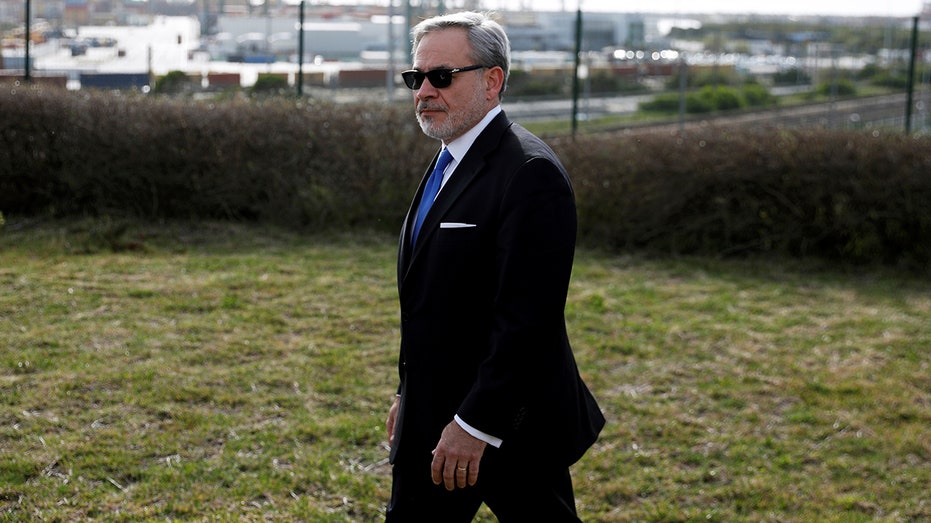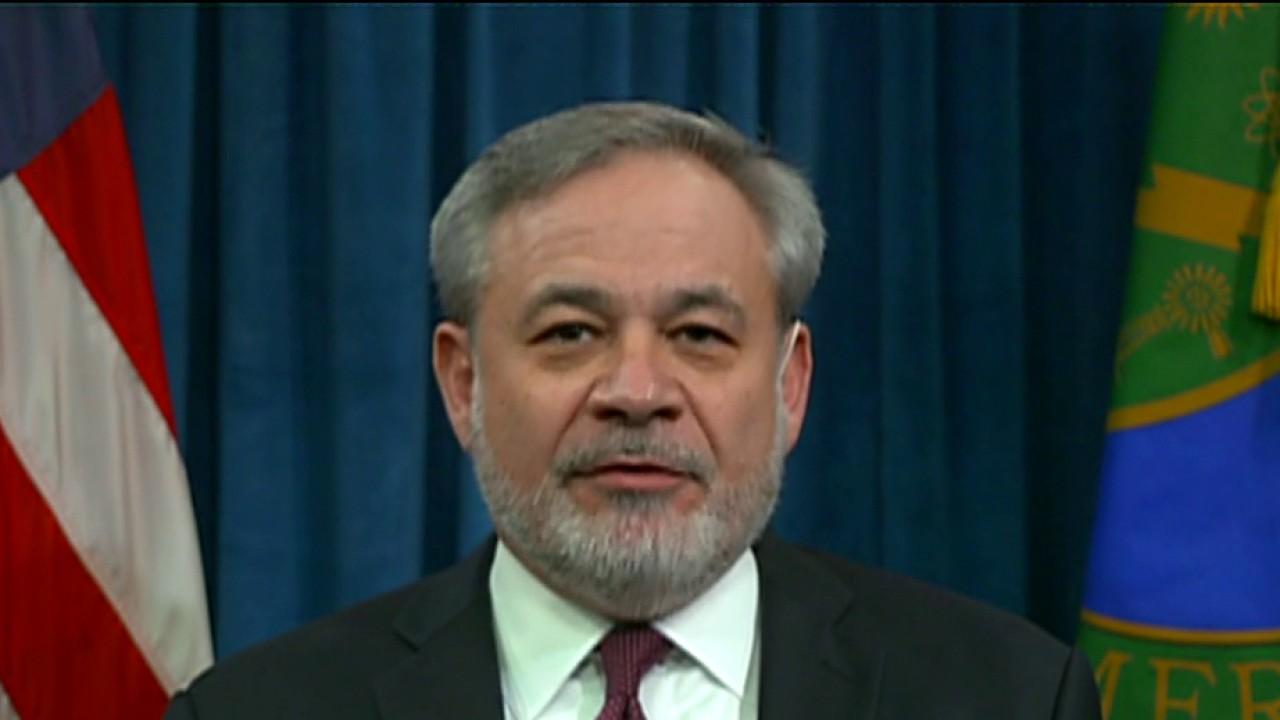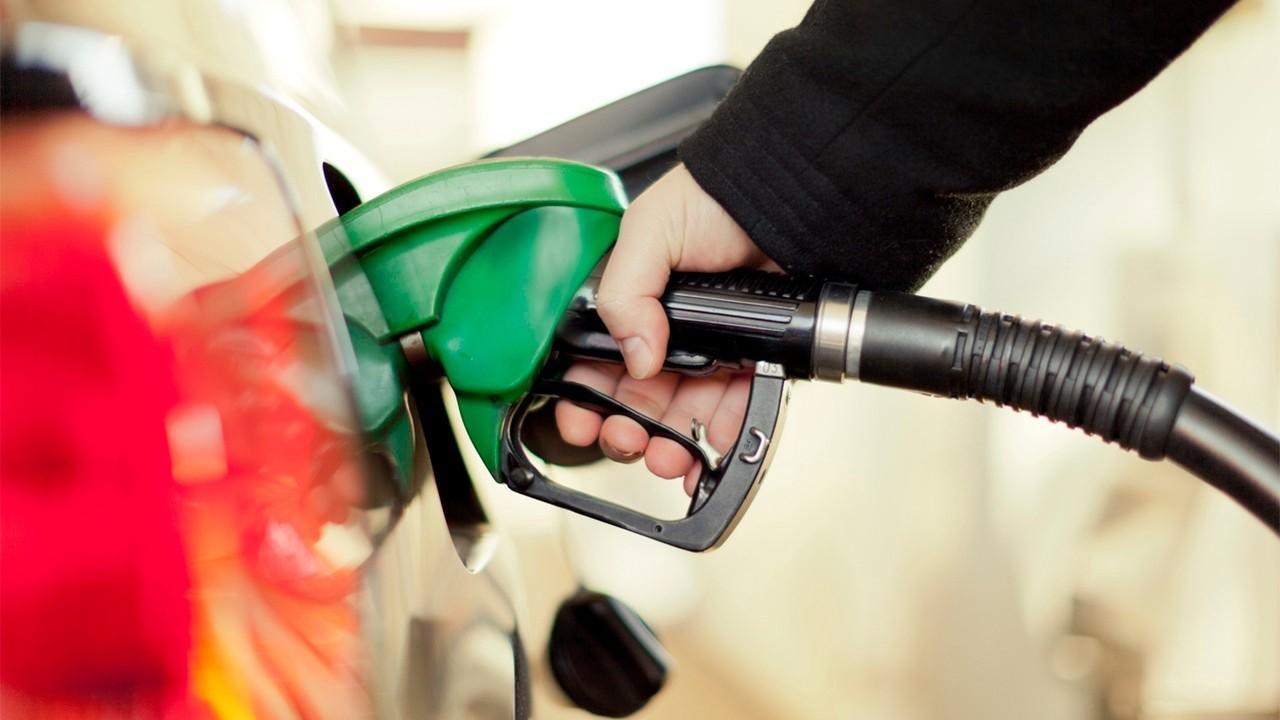Gas to remain cheap during coronavirus as demand rebounds: US Energy secretary
Average price for regular gas is $1.86, says AAA
Get all the latest news on coronavirus and more delivered daily to your inbox. Sign up here.
Even as some U.S. states begin reopening businesses and easing coronavirus restrictions — and residents start to leave their homes — gas prices might not catch up to demand right away.
Energy Secretary Dan Brouillette spoke to FOX Business Network Friday about the oil industry, which has taken a hit as people travel less and global storage space nears capacity.
“Consumers, as these economies open up, will enjoy some really, really cheap gasoline prices, which is going to be — as the president pointed out — the same effect as a tax cut for the American economy,” he told host Liz Claman. “So, consumers are going to benefit from that.”
OIL PRICES TUMBLE EVEN AS STOCKPILES SHRINK FOR FIRST TIME IN 16 WEEKS
One of the great things, he added, is that “as we have increased our production here in the United States and others have increased their production around the world, we’ve been able to balance the markets in a way that we haven’t been able balance the markets in a way that, frankly, we haven’t been able to do in three, or four, or five different decades. … As long as we can continue to enhance our ability to produced oil and gas here in the United States and around the world, we are going to see a great, great becoming opportunity for consumers.”
Although some states like Georgia and South Carolina have already kicked off reopening plans, others like New York, where the virus hit harder, have extended stay-at-home orders, meaning the demand for fuel should remain at low levels with prices following suit.
NASCAR'S FAST RETURN FROM CORONAVIRUS PAUSE WILL BOOST SPORT'S VISIBILITY, STEVE PHELPS SAYS
The average price for regular gas is $1.86, versus $2.86 a year ago, according to AAA.

U.S. Secretary of Energy Dan Brouillette visits the LNG (liquefied natural gas) terminal at the port of Sines, Portugal Feb. 12, 2020. (REUTERS/Rafael Marchante)
To provide an idea of how driving trends have changed, auto-data firm INRIX conducted real-time analyses of anonymous in-car and smartphone data. On March 18, speeds on the highways around New York City, one of the country’s most congested cities, were more than 50 percent higher during the morning commute and 60 percent higher in the evening compared to the average speeds during the past three or four months.
Similar patterns have been seen in Seattle, suggesting fewer people are driving.
CLICK HERE TO GET FOX BUSINESS ON THE GO
“The consumer can expect these low prices to persist over the next three months because the oil market continues to be overwhelmed with supply,” Andrew Lipow, president of the Houston-based consulting firm Lipow Oil Associates, told FOX Business in April.
“It's not until demand begins its long road to recovery that we're going to see gasoline prices beginning to go up,” he added. "Looking out forward, there is a moderate increase in gasoline futures prices, which is a reflection of the anticipation that the economy will begin to open up, resulting in an improvement in demand."





















